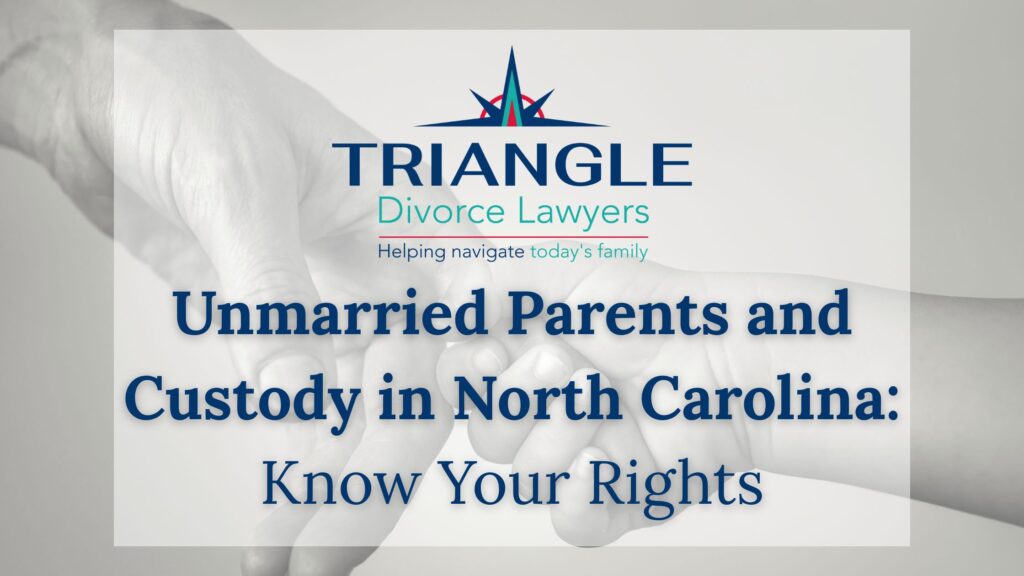Domestic violence casts a long shadow over family relationships, and when marriages affected by abuse come to an end, the legal side of things can become particularly complex.
In North Carolina, courts take allegations of domestic violence very seriously, understanding that these situations require careful consideration to protect both victims and children involved.
If you’re facing divorce or custody issues complicated by domestic violence, it’s important to understand how North Carolina law addresses these sensitive matters.
How Is Domestic Violence Handled In North Carolina Courts?
North Carolina defines domestic violence broadly under Chapter 50B of the General Statutes. The law recognizes that abuse takes many forms beyond physical violence, including emotional abuse, threats, harassment, stalking, and interference with personal liberty. This comprehensive definition acknowledges that domestic violence often involves patterns of control and intimidation rather than isolated incidents.
The legal system distinguishes between current domestic violence situations requiring immediate protection and historical patterns of abuse that influence long-term custody and divorce decisions. Both scenarios significantly impact how courts approach family law matters, but they require different legal strategies and considerations.
When domestic violence enters divorce proceedings, it fundamentally changes how courts evaluate everything from temporary living arrangements to final custody determinations. North Carolina judges have broad discretion to consider the safety and welfare of all family members, and evidence of domestic violence heavily influences these decisions.
Protective Orders and Their Role in Divorce Proceedings
Domestic Violence Protective Orders (DVPOs) serve as crucial tools for immediate safety, but they also play an important role in divorce and custody cases. When someone obtains a protective order against their spouse, it immediately affects the family dynamic and legal proceedings.
A protective order can require the abusive party to leave the family home, stay away from the victim’s workplace or children’s school, and cease all contact. These emergency measures often become the temporary framework for separation while divorce proceedings unfold. The existence of a protective order doesn’t automatically determine custody outcomes, but it certainly influences how courts approach initial temporary custody arrangements.
It’s important to understand that protective orders and divorce cases are separate legal proceedings, even when they involve the same parties. However, evidence presented in protective order hearings can be relevant to divorce and custody cases.
The timing of protective order requests can be crucial. Some individuals hesitate to seek protection because they worry about how it might affect custody or property division. In reality, prioritizing safety through appropriate legal protection often strengthens one’s position in family court by demonstrating responsible parenting and self-protection.
What Impact Does Domestic Violence Have On Child Custody?
North Carolina courts prioritize the best interests of children above all other considerations in custody cases. When domestic violence is present, this standard takes on additional complexity as judges must carefully evaluate how past abuse affects ongoing parenting relationships.
The law requires courts to consider whether domestic violence has occurred between the parties or directed toward any child in the family. This consideration extends beyond direct physical abuse of children to include the recognized trauma that children experience when witnessing domestic violence between their parents.
Courts often distinguish between different types of domestic violence when making custody decisions. Isolated incidents may be treated differently than ongoing patterns of abuse, and violence directed toward children carries more weight than violence solely between adult partners. However, all forms of domestic violence raise serious questions about a person’s fitness for custody or unsupervised visitation.
Even when an abusive parent maintains some custody or visitation rights, courts typically implement protective measures. These might include supervised visitation, exchanges in public places, or requirements that a neutral third party facilitate custody transitions.
The emotional impact on children receives significant attention from North Carolina courts. Judges recognize that children who witness domestic violence often experience anxiety, behavioral problems, and difficulty forming healthy relationships. This understanding influences decisions about custody arrangements, with courts seeking to minimize ongoing trauma while preserving meaningful parent-child relationships when safely possible.
What Evidence And Documentation Is Needed In Domestic Violence Cases?
Successfully addressing domestic violence in family court requires careful documentation and presentation of evidence. Unlike criminal cases where the state prosecutes domestic violence charges, family court proceedings place the burden on the victim to present evidence supporting their claims.
Medical records, police reports, photographs of injuries, and witness testimonies all play important roles in establishing patterns of abuse. However, many domestic violence situations leave limited physical evidence, particularly when abuse is primarily emotional or psychological.
North Carolina courts recognize this reality and consider various forms of evidence, including text messages, emails, voicemails, and testimony from friends, family members, or counselors who observed the abuse or its effects.
Documentation should begin as soon as possible and continue throughout legal proceedings. Keeping detailed records of incidents, including dates, times, witnesses, and specific behaviors, helps establish credible timelines and patterns. Even seemingly minor incidents can become significant when viewed as part of a larger pattern of controlling or abusive behavior.
Protecting Yourself From Domestic Violence With TDL
While domestic violence adds complexity to divorce and custody cases, North Carolina law provides meaningful protections for victims and their children. Understanding how these protections work and what evidence courts consider can help victims make informed decisions about their legal options.
If you’re facing family law issues complicated by domestic violence, don’t let fear or uncertainty prevent you from seeking the protection and legal help you deserve.
Our compassionate attorneys at Triangle Divorce Lawyers understand the unique challenges domestic violence survivors face during divorce and custody proceedings. We’re committed to providing the strategic advocacy and supportive guidance you need during this difficult time. Contact our offices in Raleigh, Cary, Wake Forest, or Clayton today to discuss your situation and learn about your legal options.





